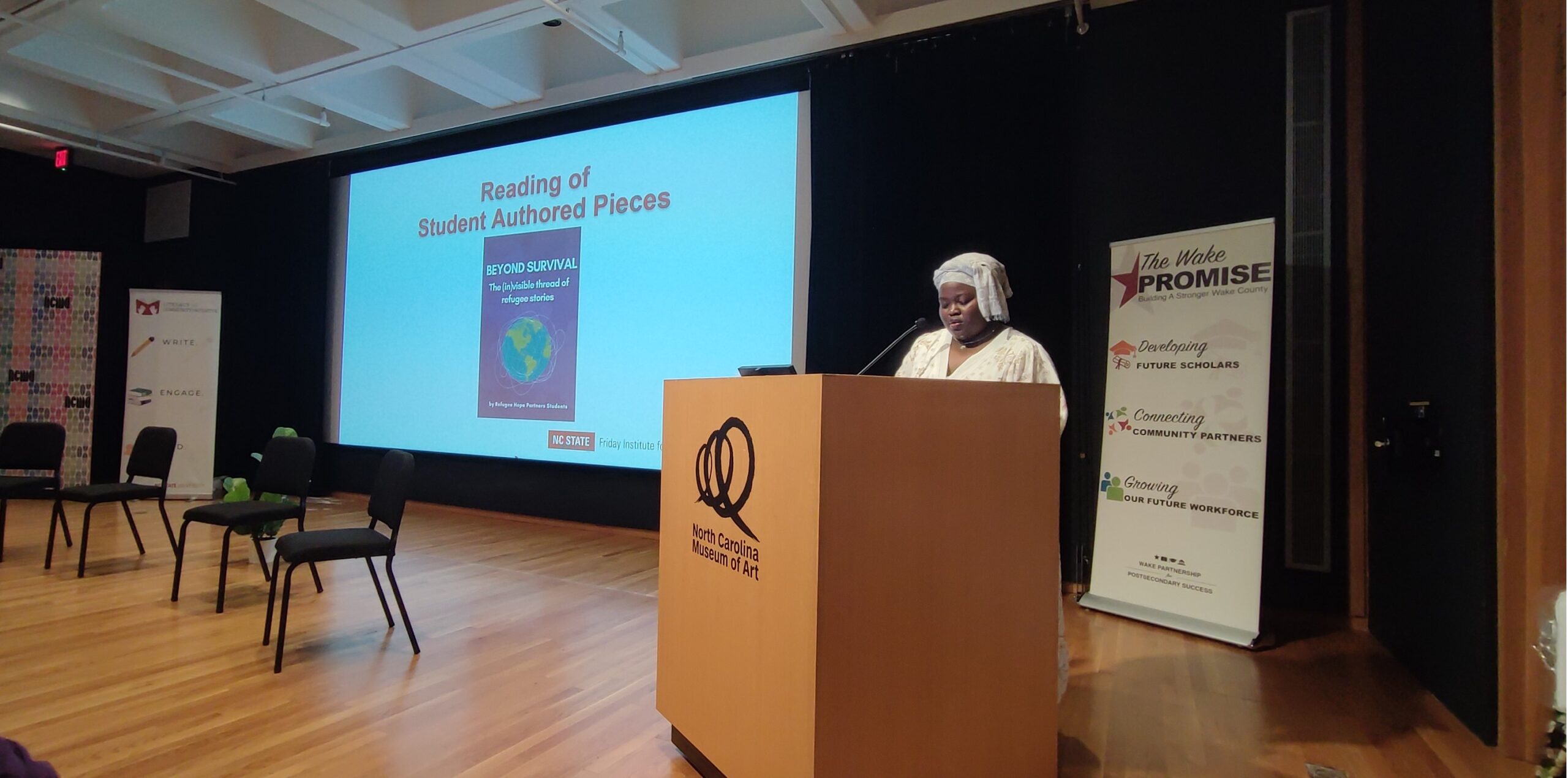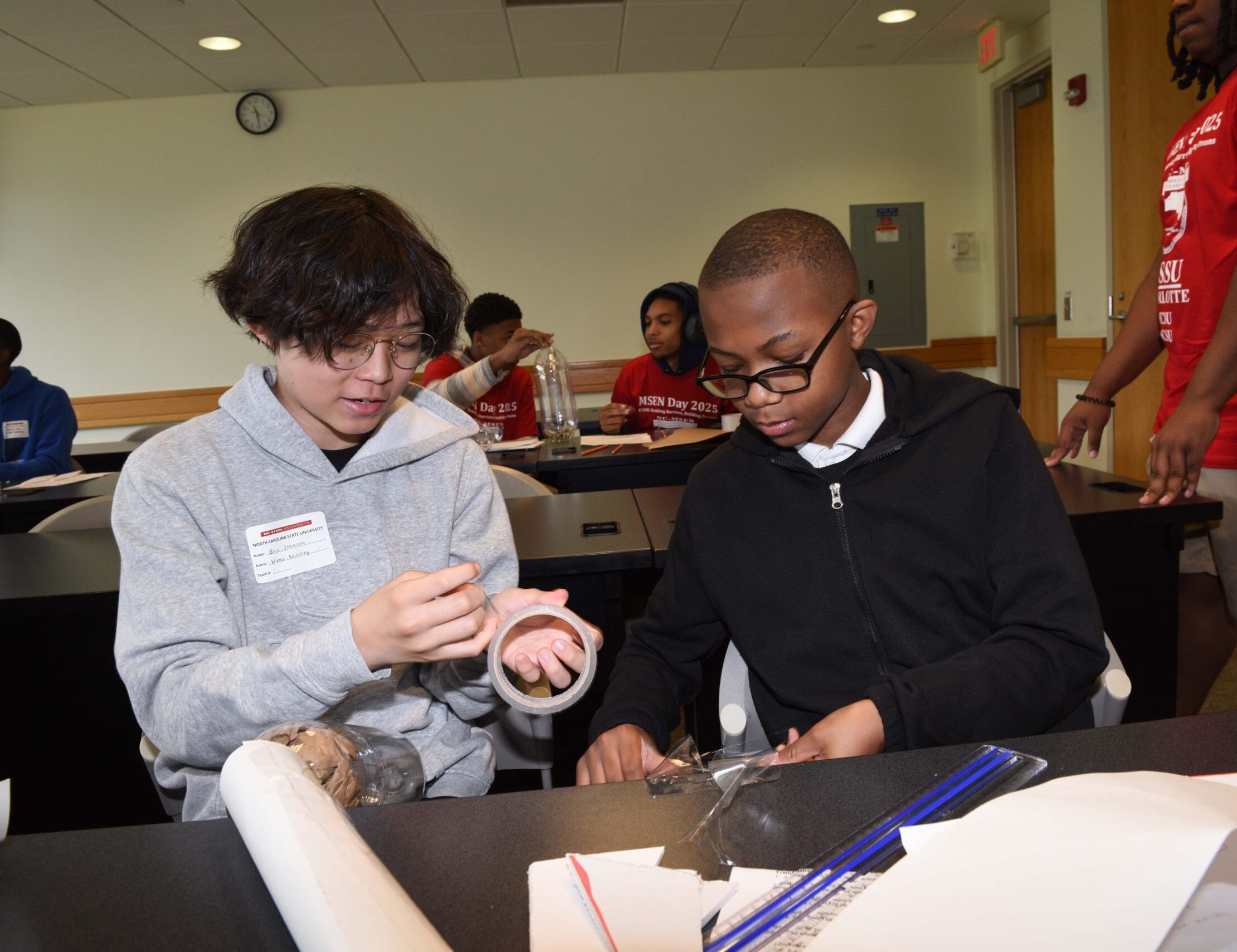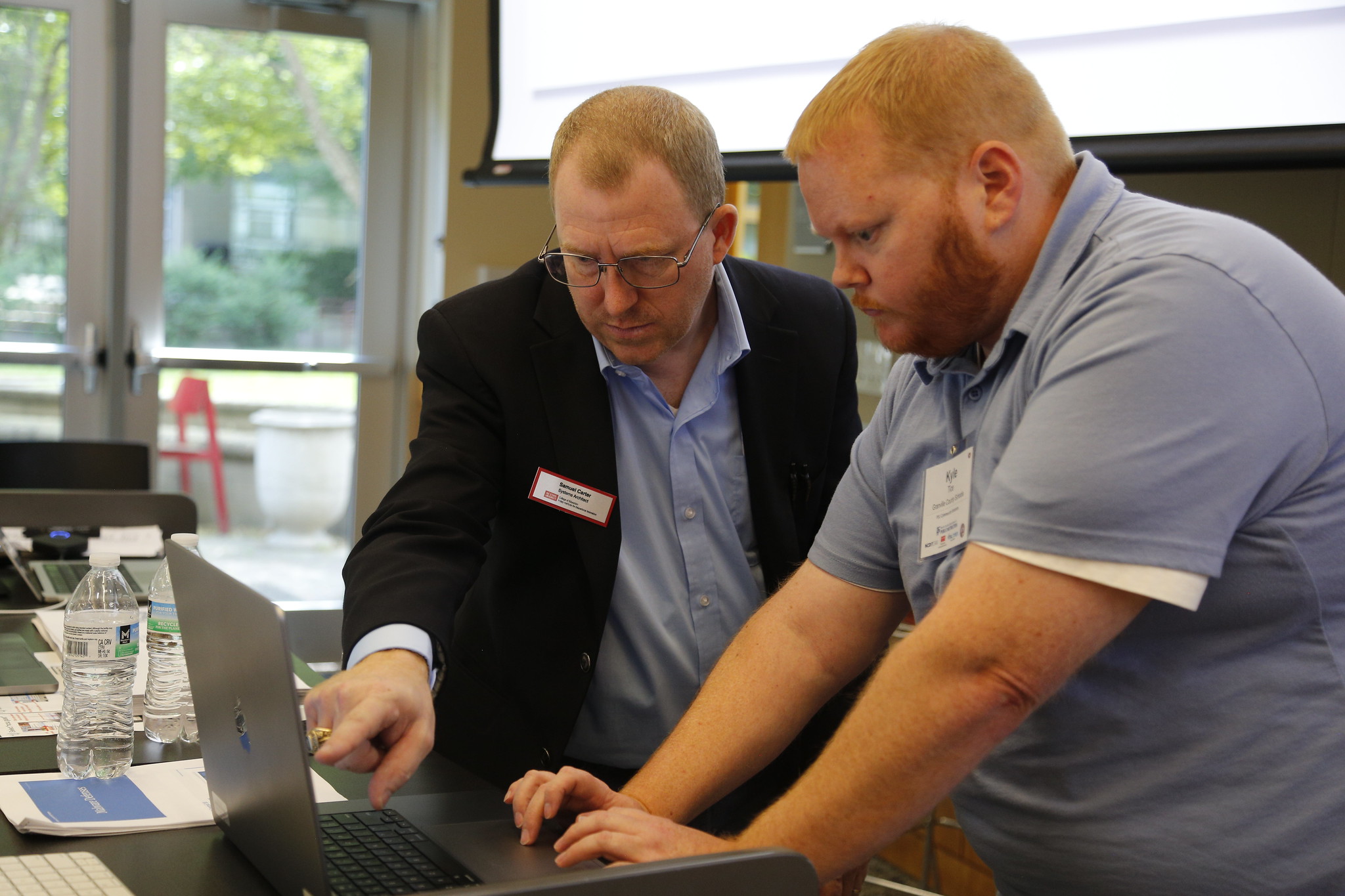Oak Foundation Convening Energizes Learning Differences Work at the Friday Institute

One of the ways the Friday Institute for Educational Innovation advances K-12 education is through connecting, convening and collaborating with educational stakeholders. But due to the COVID-19 pandemic, the Friday Institute had been unable to convene and connect in person for nearly two years. This summer, the Friday Institute began hosting large events in person again in order to bring people together for change, equity and innovation in education. Oak Foundation’s Learning Differences Programme Convening, held Sept. 13-15 at the Friday Institute, was one of those events.
“Part of the magic of the convening was being in person for the first time in so long with so many like-minded people (i.e., equity focused, learner centered) who have various gifts, talents and abilities and are addressing this common topic of empowering all learners in a multitude of ways,” said Callie Edwards, acting director of the Program Evaluation and Education Research Group at the Friday Institute and principal investigator (PI) for an Oak Foundation grant. “The learning cohort model they established where we were intentionally paired with different organizations to process throughout the convening was a brilliant way to foster new connections and cross collaborations.”

Oak Foundation’s convening hosted over 90 grantee partners, including staff from the Friday Institute. Partners participated in three days of reflection, connection, learning sessions, panels and community building. Blake Wiggs, a research scholar at the Friday Institute, and Jonathan Barbee, events manager at the Friday Institute, were on the planning team who designed the agenda and coordinated the event.
The planning team had four goals that guided everything that took place during the convening: establish and continue to strengthen a learning community; develop deeper skills and capacity to advance equity through individual and collective impact; learn insights from students, teachers and parents to strengthen outcomes for students with learning differences; and reflect on partners’ work and attend to their personal wellbeing.
Wellness was centered and space was provided for it, with intentional transition times, breaks between sessions, activities such as yoga and painting, and optional wellness sessions throughout the convening. All wellness activities were facilitated through Arise Energy, an organization that offers support to organizations, groups and individuals via programming and mindfulness tools in the form of wellness workshops, community activations and curated retreats.
“The partnership with Arise Energy brought an intentional focus on wellness throughout the convening,” said Heather Graham, programme director for learning differences at Oak Foundation. “Participants have shared how much they appreciated the time to focus on their own wellbeing and seeing partners embrace the spaces for creativity, music, art and mindfulness was joyful.”
Other activities from the event included a panel of students and young adults with learning differences, PechaKucha-style presentations from three North Carolina educators on working with students during the pandemic and times of civil unrest, and sessions on building the capacity of equitable organizations and supporting students with learning differences.

“I met new colleagues in the learning differences space and learned about their work,” said Edwards. “I also attended a dynamic session about coalition building, which gave me some great food for thought. As a scholar-practitioner, I am most interested in addressing complex issues such as educational equity that require multiple voices, perspectives, approaches and organizations. This work is too vast for any one organization to address in a silo. I’m interested in exploring coalition building more to augment and advance my work.”
Oak Foundation’s learning differences “programme strategy” promotes educational equity by partnering with organizations that improve education for students with learning differences.
“We believe that every student should benefit from engaging and meaningful educational opportunities regardless of personal and social identifiers that privilege some students and marginalise others such as learning differences, race, income, language, ethnicity, sexual orientation, gender and religion,” said Graham. “In our work, we are particularly focused on efforts that support students with learning differences who are furthest from opportunity and experience further marginalization due to racism and poverty.”
For the last seven years, the Friday Institute has offered a range of online professional development experiences that focus on learning differences, social and emotional learning (SEL) and learner agency. Oak Foundation has been a major supporter of this work and, this winter, they awarded a three-year grant to the Friday Institute, titled “Building Educator Capacity to Support Students with Learning Differences,” to develop a deeper understanding of these topics and the impact of their associated online professional development offerings in order to provide more targeted support for educators and students. Edwards is the PI on the grant.
The grant has entailed maintaining the high-impact of professional learning previously funded by Oak Foundation by updating, customizing and continuing to offer courses and modules on learning differences, SEL and learner agency. The team will also be evaluating the impact of the programs on students and educators; identifying evidence-based lessons learned and leveraging partnerships and open source technologies to provide support for organizations to integrate and customize content to meet their unique needs.
Since the grant was awarded, the project team has been dedicated to research and evaluation planning, recruiting deep dive schools, launching the Learner Agency program at two schools, analyzing data from the Learning Differences course and reviewing the Social and Emotional Learning for Educators online course.
“We are grateful for the incredible opportunity of this grant, and I like to think of it as the grand finale of an exceptional eight-year-long partnership with Oak Foundation,” said Edwards. “As would be expected, throughout this tenure, mountains of program evaluation data have been collected. However, rarely do we as methodologists have a dedicated scope of work to creatively analyze such pre-collected data, identify trends over time and thoughtfully ask ourselves not only what did we learn but also how can we make that learning accessible to a variety of audiences beyond the academic community. We’ve uncovered so much learning in just the first couple of months of the grant, and I look forward to the adventure ahead of us!”
- Categories:


